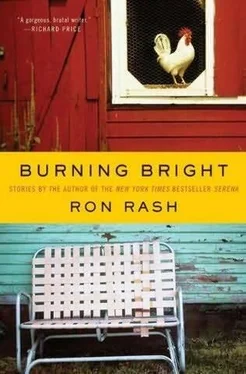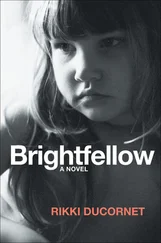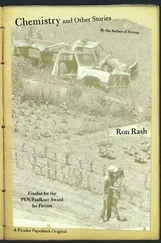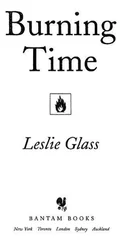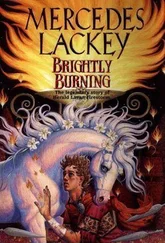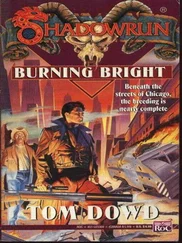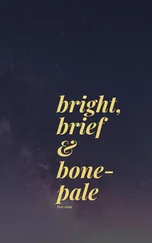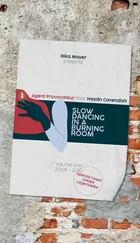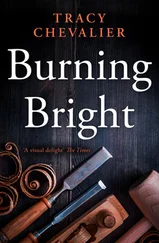Boyd was fourteen when he heard the corpse bird in the woods behind the barn. His grandfather had been sick for months but recently rallied, gaining enough strength to leave his bed and take short walks around the farm. The old man had heard the owl as well, and it was a sound of reckoning to him as final as the thump of dirt clods on his coffin.
It’s come to fetch me, the old man had said, and Boyd hadn’t the slightest doubt it was true. Three nights the bird called from the woods behind the barn. Boyd had been in his grandfather’s room those nights, had been there when his grandfather let go of his life and followed the corpse bird into the darkness.
The next morning at breakfast Boyd didn’t mention the owl to his wife or daughter. What had seemed a certainty last night was more tenuous in daylight. His mind drifted toward a project due by the week’s end. Boyd finished his second cup of coffee and checked his watch.
“Where’s Jennifer?” he asked his wife. “It’s our week to carpool.”
“No pickup today,” Laura said. “Janice called while you were in the shower. Jennifer ran a temperature over a hundred all weekend. It hasn’t broken so Janice is staying home with her.”
Boyd felt a cold dark wave of disquiet pass through him.
“Have they been to the doctor?”
“Of course,” Laura said.
“What did the doctor say was wrong with Jennifer?”
“Just a virus, something going around,” Laura said, her back to him as she packed Allison’s lunch.
“Did the doctor tell Janice anything else to watch out for?” Boyd asked.
Laura turned to him. The expression on her face wavered between puzzlement and irritation.
“It’s a virus, Boyd. That’s all it is.”
“I’ll be outside when you’re ready,” Boyd told his daughter, and walked out into the yard.
The neighborhood seemed less familiar, as though many months had passed since he’d seen it. The subdivision had been built over a cotton field. A few fledgling dogwoods and maples had been planted in some yards, but the only big tree was the scarlet oak that grew on an undeveloped lot behind the Colemans’ house. Boyd assumed it was once a shade tree, a place for cotton field workers to escape the sun a few minutes at lunch and water breaks.
The owl was still in the oak. Boyd knew this because growing up he’d heard the older folks say a corpse bird always had to perch in a big tree. It was one way you could tell it from a regular barn or screech owl. Another way was that the bird returned to the same tree, the same branch, each of the three nights.
His family had moved to Asheville soon after his grandfather’s death. Boyd had been an indifferent student in Madison County, assuming he’d become a farmer, but the farm had been sold, the money divided among his father and aunts. At Asheville High Boyd mastered a new kind of knowledge, one of theorems and formulas, a knowledge where everything could be explained down to the last decimal point. His teachers told him he should be an engineer and helped Boyd get loans and scholarships so he could be the first in his family to attend college. His teachers urged him into a world where the sky did not matter, where land did not blacken your nails, cling to your boots, or callous your hands but was seen, if at all, through the glass windows of buildings and cars and planes. The world irrelevant and mute. His teachers had believed he could leave the world he had grown up in, and perhaps he had believed it as well.
Boyd remembered the morning his college sociology class watched a film about the folklore of Hmong tribesmen in Laos. After the film the professor asked if similar beliefs could be found in other cultures. Boyd raised his hand. When he’d finished speaking, the professor and the other students stared at Boyd as if a bone pierced his nostrils and human teeth dangled from his neck.
“So you’ve actually witnessed such things?” the professor asked.
“Yes, sir,” he replied, knowing his face had turned a deep crimson.
A student sitting behind him snickered.
“And this folklore, you believe in it?” the professor asked.
“I’m just saying I once knew people who did,” Boyd said. “I wasn’t talking about myself.”
“Superstition is nothing more than ignorance of cause and effect,” the student behind him said.
Rational. Educated. Enlightened . Boyd knew the same words he’d heard years ago in college, the same sensibility that came with those words, prevailed in the subdivision. Most of his neighbors were transplants from the Northeast or Midwest, all white-collar professionals like himself. His neighbors would assume that since it was October the owl was migrating. Like the occasional possum or raccoon, the owl would be nothing more to them than a bit of nature that had managed to stray into the city and would soon return to its proper environment.
But Boyd did worry, off and on all morning and afternoon. He couldn’t remember Allison ever having a fever that lasted three days. He thought about calling the Colemans’ house to check on Jennifer, but Boyd knew how strange that would seem. Despite the carpool and their daughters’ friendship, the parents’ in teractions were mostly hand waves and brief exchanges about pickup times. In their six years as neighbors, the two families had never shared a meal.
Though Boyd had work that he’d normally stay late to finish, at five sharp he logged off his computer and drove home. Halloween was five nights away, and as he turned into the subdivision he saw hollow-eyed pumpkins on porches and steps. A cardboard witch on a broomstick dangled from a tree limb, turning with the wind like a weather vane. At another house a skeleton shuddered above a carport, one bony finger extended as if beckoning. A neighborhood contest of sorts, and one that Jim Coleman particularly enjoyed. Each year Jim glued a white bedsheet over a small parade float. He tethered its nylon cord to a concrete block so that his makeshift ghost hovered over the Coleman house.
There had been no such displays when Boyd was a child, no dressing up to trick-or-treat. Perhaps because the farm was so isolated, but Boyd now suspected it had been more an understanding that certain things shouldn’t be mocked, that to do so might bring retribution. As Boyd passed another house, this one adorned with black cats, he wondered if that retribution had already come, was perched in the scarlet oak.
It was almost dark when he pulled into the driveway behind his wife’s Camry. Through the front window, Boyd saw Allison sprawled in front of the fire, Laura sitting on the couch. The first frost of the year had been predicted for tonight and from the chill in the air Boyd knew it would be so.
He stepped into the side yard and studied the Colemans’ house. Lights were on in two rooms upstairs as well as in the kitchen and dining room. Both vehicles were in the carport. Jim Coleman had turned on a spotlight he’d set on the roof, and it illuminated the ghost looming overhead.
Boyd walked into the backyard. The scarlet oak’s leaves caught the day’s last light. Lambent , that was the word for it, Boyd thought, like red wine raised to candlelight. He slowly raised his gaze but did not see the bird. He clapped his hands together, so hard his palms burned. Something dark lifted out of the tallest limb, hung above the tree a moment, then resettled.
In the living room, Allison and her schoolbooks lay sprawled in front of the hearth. When Boyd leaned to kiss her he felt the fire’s warmth on her face. Laura sat on the couch, writing month-end checks.
“How is Jennifer?” he asked when he came into the kitchen.
Laura set the checkbook aside.
“No better. Janice called and said she was going to keep her home again tomorrow.”
Читать дальше
